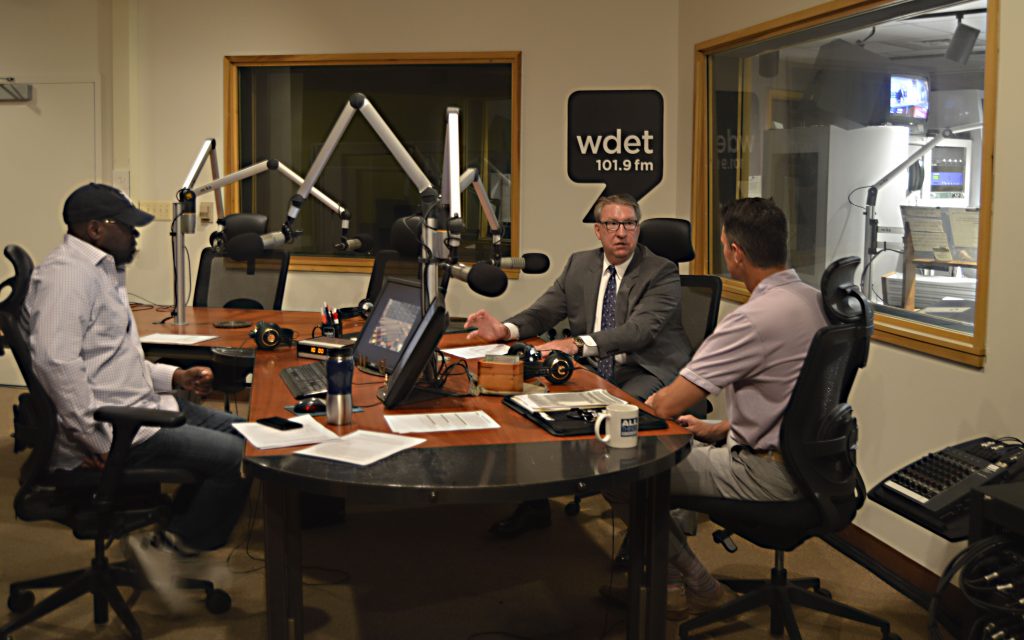How do Term Limits Affect Michigan Voters?
Should Michigan repeal term limits?

Stephen Henderson talks with Craig Thiel, Senior Research Associate for the Citizens Research Council of Michigan, and Roger Martin, Partner at Martin Waymire, about how term limits affect Michigan’s political process, and what can be done about it.
- Elections: Martin says that he was against term limits when they were first instituted, because we already ought to have effective term limits in the form of elections. Multiple callers echo this sentiment, and believe that fairer districting would help elections be more effective.
- Intent vs. results: Michigan’s term limits were originally instituted as an attempt to cut down the influence of lobbyists and money in state politics, but Martin and Thiel agree this has not worked. Martin says that the only people who have stuck around in Lansing since before term limits are the lobbyists.
- Career focus: Thiel says that part of the idea behind term limits was that legislators would come to Lansing, serve their time, and go back to their community. He says that instead, they become focused on staying in Lansing by moving up in office, and become very focused on votes. This makes legislators very conscious of which issues they will vote on and how, because they are always planning for an election.
- Roads: Martin, Thiel, and Stephen agree that the state government’s inability to construct a long-term fix for road funding is connected to term limits. Martin says that “the institutional knowledge is gone”, and Thiel says there is little motivation for legislators to take the long view.
- Partisan districting: A caller says he believes gerrymandering is a part of the fundamental problem. He says guaranteed districts push politicians to be more partisan and stop elections from working as effective term limits. Martin calls partisan districting and term limits a “two-headed monster” that protects the dominant party and incumbents. Thiel agrees with this characterization.
- Robbing relationships: Stephen says he remembers a different type of relationship between politicians and voters from his childhood, and that there was more trust between them. Martin says term limits have hurt the ability and motivation of legislators to form the relationship with each other that they need to in order to compromise and work together.
- Realistic change: Thiel and Martin agree that getting rid of term limits entirely is unrealistic, and hope to extend the years per term or add possible terms. They do not believe we will see these changes within the next year.
Click the audio link above to hear the full conversation.
